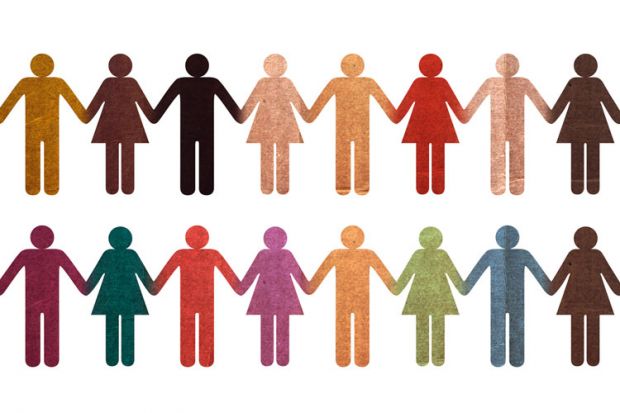
A little while ago, I attended a one-day training session for PhD students on the subject of decolonisation. It discussed how we can address and critique the legacies of imperial racism that persist in our research, the curriculum and the university at large.
It was a challenging and stimulating day that encouraged us to consider how the work that we do as doctoral researchers relates to issues of political oppression in higher education and beyond, and how this work might bolster or resist such oppression. Not only did we talk about the material included on reading lists, we also discussed the politics of citation, debated the role that our theses will have in the wider world, and learned about the strategies used by diversity and equality teams to tackle inequality across the university.
Towards the end of the day, I asked a question about the practicalities of decolonising our research: what would it look like to carry out research that could actually make a difference to the racist world that we live in?
After I’d asked my question, one of the attendees said “I think that we should stop all this moralising and just do politics instead.” But what does it mean to do politics as a PhD student?
Read more of Charlie’s blog
PhD diary: preparing for a PhD
PhD diary: where do I begin?
PhD diary: having a bad day
PhD diary: the romance versus the reality of a PhD
PhD diary: new year’s resolutions
PhD diary: imparting knowledge to the younger generation
This question has become more urgent since university staff carried out a period of strike action over changes to the Universities Superannuation Scheme (USS) and students initiated protests at institutions throughout the country.
As a member of the University and College Union (UCU), I’ve been glad to support the strike and my lecturers in the small ways that I can. This is, after all, about protecting our collective future and defending the trade that many PhD students hope, some day, to be part of.
Standing on the picket line, or marching through London in the snow, with staff and students from my department, the rest of the university and other institutions, I’ve been considering the best way for me to do politics as a PhD student.
Some PhD students will consider their thesis and research to be a form of activism, something that will play a part in changing the world. In our writing, we hope to take on the wrongs of the past and the present and set the world to rights.
However, our working conditions – whom we work with and how – are just as important. My sense of being a PhD student with a commitment to social justice is in the ways that we, as members of universities, work with each other and, more importantly, with those outside higher education.
As someone who worked in widening participation before undertaking doctoral research, and who continues to engage with access projects that aim to increase the number of people from backgrounds currently under-represented in higher education, this emphasis is second nature to me. This is about concrete measures: funding for initiatives that allow people to find out more about university and how they can get into one.
Through public lectures, community engagement workshops or school visits, the ways in which we share our work with others is what counts. Not only do events such as these allow people traditionally excluded from university to feel as though they have something at stake over what goes on inside the academy’s walls, but in expanding our audience these encounters will transform our research and make us better at writing about it.
It’s also critical that those at university have more chance to mix with others and opportunities for useful exchanges to take place. This has a special relevance for doctoral candidates, who are often in the position of being neither employees nor students and who can consequently feel alienated from both camps.
One of the most positive things to emerge from this period of industrial action is the opportunity for building connections across departments and institutions: students and staff from different disciplines and universities have met on picket lines and marches and are supporting and helping each other in all sorts of ways.
Moments of collective action are educative and conducive to learning. In teach-outs and more informal discussions in the streets, we’ve been sharing knowledge and debating the key issues in this dispute. The strike has not been a closing down of education, but an opening up of its potential to improve all our lives.
Everyone in the university should try and attend the sort of decolonisation training that I did to find ways to ensure that their work, whatever it is, is not so complicit in the racist, sexist and classist structures that still shape higher education.
We should take heed from the lessons of university outreach and the strikes in understanding the crucial role of engaging with those we do not usually encounter.
Read more: required reading: how can we fix the Oxbridge problem?
























Have your say